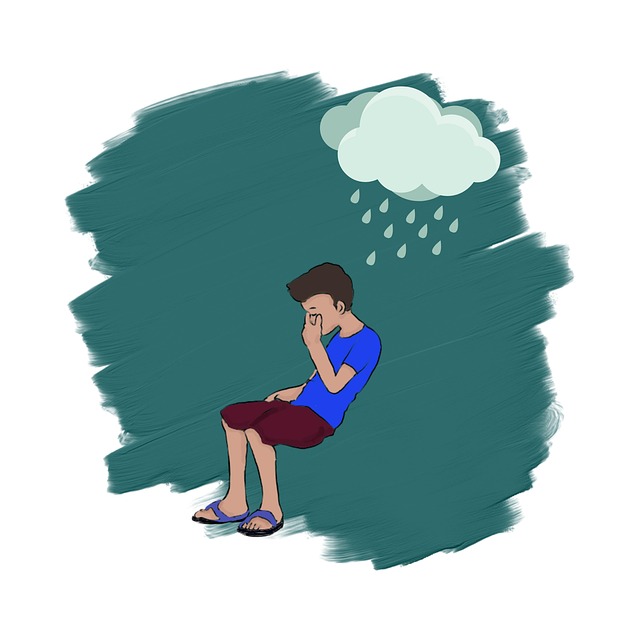Psychologists specializing in child and adolescent therapy use evidence-based techniques like cognitive-behavioral therapy (CBT) and mindfulness to support young individuals aged 0-18 through emotional and behavioral challenges. By creating safe spaces, promoting open communication, and teaching healthy coping mechanisms, they empower clients to navigate life's difficulties, improve relationships, and develop a positive sense of self. Psychologists address common issues such as anxiety, depression, low self-esteem, peer pressure, trauma, and anger management, helping young people lead happier, more fulfilling lives.
Looking for support for your child’s emotional wellbeing? A psychologist specializing in child and adolescent therapy can make a significant difference. This article delves into the vital role these professionals play in fostering healthy development, addressing common emotional challenges faced by young individuals, and outlining effective strategies used during therapeutic sessions.
Explore the benefits of incorporating psychologists into your child’s journey towards lasting emotional resilience.
- Understanding Child and Adolescent Therapy
- The Role of a Psychologist in Promoting Emotional Wellbeing
- Identifying Common Emotional Challenges in Children and Teenagers
- Effective Strategies for Child and Adolescent Therapy Sessions
Understanding Child and Adolescent Therapy
Child and adolescent therapy is a specialized field within psychology, focusing on supporting young individuals aged 0-18 through various emotional and behavioral challenges. This therapeutic approach aims to help children and teens understand and manage their emotions, develop healthy coping strategies, and enhance overall well-being. Psychologists who practice in this realm are trained to create a safe, non-judgmental space for exploration and growth.
During therapy sessions, psychologists employ evidence-based techniques tailored to the unique needs of each child or adolescent. These methods may include cognitive-behavioral therapy (CBT), mindfulness practices, play therapy, or family therapy, among others. The goal is to empower young people with the skills needed to navigate life’s difficulties, improve relationships, and foster a positive sense of self.
The Role of a Psychologist in Promoting Emotional Wellbeing
A psychologist plays a pivotal role in fostering and promoting emotional wellbeing, especially among children and adolescents. Through evidence-based therapeutic practices, they create safe spaces for individuals to explore and express their feelings. By employing various techniques such as cognitive-behavioural therapy (CBT), mindfulness exercises, and play therapy, psychologists help young people develop healthy coping mechanisms and emotional regulation skills.
In the process of therapy, these professionals guide children and adolescents in navigating complex emotions, understanding triggers, and building resilience. They provide a non-judgmental environment that encourages open communication, allowing individuals to share their experiences and work through challenges. This support is vital for enhancing overall mental health and emotional stability at a crucial stage of development.
Identifying Common Emotional Challenges in Children and Teenagers
Children and teenagers often face a range of emotional challenges as they navigate through their developmental stages. Common issues include anxiety, depression, low self-esteem, peer pressure, trauma, and difficulty managing anger or emotions. These problems can stem from various sources such as family dynamics, school stress, social interactions, or past experiences. A psychologist plays a vital role in identifying these emotional struggles early on, as they have the expertise to delve into the root causes and provide effective strategies for coping.
Through therapy sessions, psychologists help young individuals develop healthy emotional regulation skills, enhance their self-awareness, and build resilience. They offer a safe space for children and teenagers to express their feelings, work through traumatic events, or simply learn how to navigate social situations with more confidence. By addressing these emotional challenges proactively, psychologists empower their young clients to lead happier and more fulfilling lives.
Effective Strategies for Child and Adolescent Therapy Sessions
In child and adolescent therapy sessions, psychologists employ a variety of effective strategies tailored to address emotional wellbeing. One key approach is psychoeducation, where therapists educate both children and parents about common emotional and behavioural issues, empowering them to better understand and manage challenges. This is followed by cognitive-behavioural therapy (CBT), which helps young individuals identify and change negative thought patterns and behaviours contributing to their distress.
Engaging activities, play therapy, and expressive arts are also integrated into sessions to make therapy fun and accessible for children. These interactive methods allow psychologists to explore complex emotions in a safe, non-threatening way, fostering open communication. Furthermore, building a strong therapeutic alliance is paramount. Psychologists focus on creating a warm, supportive relationship with the child and their family, encouraging honest expression and active participation in the healing process.
Child and adolescent therapy, led by trained psychologists, plays a vital role in fostering emotional wellbeing during these critical development stages. By understanding common challenges such as anxiety, depression, and peer pressure, therapists can employ effective strategies to create a safe space for expression and growth. Through tailored approaches, psychologists empower young individuals to navigate life’s complexities, build resilience, and cultivate lasting emotional intelligence, ensuring a brighter future filled with enhanced mental health and well-being.



